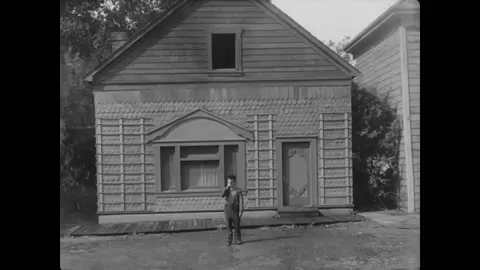Why do Teachers Quit?
(I don't really know)
A friend of mine asked me for my thoughts on why teachers leave the classroom, and what, if anything, can be done to help them stay. What follows are some thoughts on the topic.
Essentially, I have no real idea why teachers leave the classroom. Pretty much everything that follows is tentative, and less-than-maximally-coherent. But if you’ll afford me that disclaimer, I can certainly pontificate on the topic for a bit.
I think there are two big bins of reasons why teachers leave the classroom: The external and the internal. External factors are largely outside of a teacher's control: The dysfunctional school/district where teachers have to fight the system to do anything worth doing or an abusive boss that makes it impossible to work. Internal factors are within the realm of individual action, but they may be equally intractable if they are extreme enough. If you determine that teaching isn't what you thought it was and that it's actually something far away from what you want it to be, you might not be able to come back from that.
These two bins are not cleanly separated. Different people have different levels of tolerance for dysfunction. While I feel that the district I work in is totally functional, it has warts like every other school system, and while my constitution is such that I see MUCH more positive than negative where I have worked, I know from spending 15 years in the place that other people have reached different conclusions and quit. How much of that is due to true externalities of the system versus internal perspectives on what teaching should be is an open question, but I’m betting that it's more the latter in this specific case.
I’d also be remiss not to point out that suburban Long Island still remains one of the few places in the country where public education is a robust, attractive career. The recent spate of unrest in many other locales suggests to me that this is increasingly the exception to the rule in America. I can't really know what it's like to work in a less supportive environment than the only one that I have ever known, but it's hard for me to understand how teachers in worse-off circumstances hang on to a strong desire to stay in the classroom. I’m certainly of the mind that people shouldn’t go into education because of reasons outside of working to teach children, but it’s ludicrous to ask teachers to commit to work that is at the level of challenge of teaching children without providing them with a package that allows them to solely focus on the work. Security seems to be a necessary pre-requisite to mastery in teaching. I’d love to talk to more teachers who still feel that the job is the only one for them even though they have to do additional work in order to meet their economic needs.
Leaving the safety net alone, I personally find my inspiration for teaching in three major places: The work of teaching kids science is fundamentally interesting to me, it is fun to do, and I’m a giant fan of scientific reasoning/biological understandings of the world. I’ve held-forth at length on these topics in other places, but these three strands are the most resonant for me. They are certainly the things that I think about when I consider why I am in the process of giving up a career direction that took me out of the classroom to go back to the work of teaching kids full-time. Administrative work is fine, and I think I’ve done a pretty good job at it, but it’s really not interesting or fun for me. The role that I’ve filled as an administrator has allowed me to help many more of my district’s students learn science than I did as a classroom teacher, but it’s one-level removed from the real work of the thing. I have met administrators who don’t feel this way. They are upfront that they enjoy the work of administering more than they did teaching. I don’t take issue with this, but it does suggest that there are strong intrinsic perspectives on education that lead one to transition out of the classroom, even though I don’t share them. To get a handle on what those are, you'd probably have to talk to the folks who feel that way.
So teachers leave because they don’t have the same intrinsic and extrinsic support that the remainers do. Not really groundbreaking thoughts, here, but I do think it points to a way forward if the goal is to try to increase the number of retainers. In some circumstances external barriers can be lessened and internal drive can be developed, in others it probably can’t. In a perfect world you would be able to assess the internal capacities of a teacher (assuming that these things are even measurable) and then map them against those indicators of external difficulties in the school system where that teacher will be working to determine how likely/unlikely it is that a particular teacher is going to stay/leave. But even if that is possible, it’s quite likely that some school systems are so dysfunctional that almost no one who is educating students for the “right” reasons could tolerate being there. I’m similarly sure there are teachers who have intrinsic disconnects about what the reality of the work is that are so significant that they couldn’t tolerate staying in the job no matter the ease of the system they work in. My advice would be to try to identify those teachers and school systems that meet the above descriptions and basically stop thinking about them for the purpose of this consideration. They pretty much have to be a waste of your time.
Once you've sorted out the extremes, what about the great middle? Functioning school systems can always be made more functional and teachers who don’t have insurmountable intrinsic issues with the job can always develop strategies/perspectives to overcome the ones that they do have. I’m not sure what those types of interventions look like, but they must exist. I’d be interested in seeing what the literature says here. It might also be useful to reach out a bit wider to educator networks to see if anyone has really close experience with either of these/has themselves undergone these types of changes in their own thinking. For me, personally, I’m quite fortunate to be able to say that I’ve never had to confront any significant dissonance between my perspective on teaching, the reality of the job, and the nature of the system in which I work. Aside from my economic security, these are all that I've ever needed to want to remain in the classroom. It’s never had to be anything more profound than that, to my great relief.
Why do you think teachers stay or leave the profession? Is this a problem that can be fixed? Is it even a problem? Drop me a line or leave a comment below if you have something to say.
If you find value here or in the work that I do, consider showing your support.


